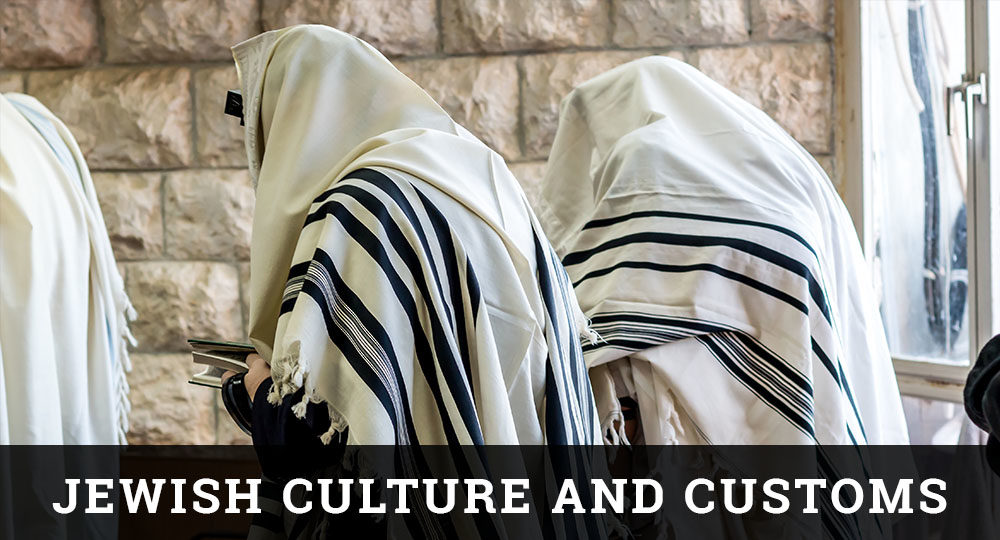The Dynamic Of Jewish Prayer
Am I a God at hand, saith the Lord, and not a God afar off? Can any hide himself in secret places that I shall not see him? saith the Lᴏʀᴅ. Do not I fill heaven and earth? saith the Lᴏʀᴅ (Jer. 23:23–24).
Many principles guide Jewish prayer, but none is more concise than God’s revelation through His prophet. The dynamic of Jewish prayer hinges on a comprehension of the awesome attributes of the God of Israel. The last article in this series—on the Siddur—related the times of and, to some extent, the content of various daily prayers. This final article on prayer gives insight into Judaism’s regard for the little, seemingly insignificant aspects of daily life. Things that may be taken for granted by others are seriously addressed in Judaism, directing the followers to be aware at all times that God has a role in all that they do. From the time they awake in the morning until their heads hit the pillow at night, Jews recite prayers that point to distinctives about God.
Preparation for the worship of God comes about almost immediately upon rising in the morning. The priests who ministered in and around the Temple purified themselves by washing before their service; therefore, each Jew must ritually spill water three times. Not only does this physically cleanse the hands, but it symbolizes the removal of all impurities as spiritual purity is restored. A full cup of water is placed in the left hand and spilled into the right. Then another full cup of water is spilled from the right hand into the left. This is done three times. Upon completion of this ritual, a blessing is recited: “Blessed art Thou, Lord our God, King of the universe, who sanctified us with His commandments and commanded us concerning the washing of hands.” It is noteworthy that the usual Hebrew word for hands is not used in this prayer. Instead, the word used here implies lifted hands. Thus, the idea of consecration to God starts immediately upon awaking in the morning. The rabbis say that no one should walk around without first washing their hands in this manner.
Once this cleansing is completed and before any other necessary activity begins—eating, working, transacting business, or beginning a journey—prayer must take place. The worshipers must have their bodies cleansed and adorned with clean clothes, and they place themselves in a spot that is clean as well. Amos the prophet said it well: “prepare to meet thy God” (Amos 4:12). The worshipers pray a prayer thanking God for keeping them alive through the night, acknowledging that without Him, “it would be impossible to survive and to stand before Thee.”
Unlike Christians, who believe that human beings are born sinful, Judaism teaches that, “As God is pure, so is man’s soul pure.” As a result of that teaching, a prayer of thanksgiving is offered to God for restoring the soul from sleep. A number of Talmudic prayers, all beginning with “Blessed art Thou, Lord our God, King of the universe…” are recited, such as “who opens the eyes of the blind,” “who clothes the naked,” “who releases the bound,” “who sets forth the earth upon the waters,” “who girds Israel with might,” “who crowns Israel with glory,” and “who gives strength to the weary.” One of the final prayers recited soon after arising encourages the worshipers to implore God to “Lead us not into sin or transgression and iniquity, or into temptation or disgrace; let not the impulse toward evil rule over us…Give us this day and every day grace, favor, and mercy—in thy sight and in the sight of all men.” These and other prayers affirm that God should be remembered and praised for all things.
Two controversial daily prayers of thanks have as their heading, “Who has not made me….” It is easy to see why they are controversial. The first expresses thanksgiving to God for not being made a Gentile, while the second gives thanks for not being made a woman. The explanation for these Talmudic prayers are simple, although not convincing to many people. Both are recited because of the tremendous privileges in keeping the commandments of God. Gentiles do not have to keep the commandments because they are not the chosen people. Women—Jewish women—are responsible for taking care of the family and home and thus are not obligated to follow the commands.
Part of everyday living involves eating. Individual prayers are recited for various foods and are chanted before eating. However, the Torah (the five books of Moses) says, “When thou hast eaten and art full, then thou shalt bless the Lᴏʀᴅ thy God for the good land which he hath given thee” (Dt. 8:10). This command is fulfilled by reciting a series of blessings: Birkat Hazan—for the food that sustains life; Birkat Haaretz—for the land given to the Jewish people by God; and Birkat Yerushalayim—for Jerusalem, that restoration of Temple worship and the King will return. A fourth blessing, Birkat Hatov V’hametiv, has been added to communicate God’s goodness. All four are recited when the meal is over.
Self-evaluation at the end of the day is extremely important. This inventory of deeds is to be done before the Sh’ma (Dt. 4:6) is recited. There must be “remorse, repentance and whole-hearted resolve not to repeat the transgression.” Also, forgiveness must be granted for any wrong committed against a person on that day.
Upon completion of prayers, a universal word—Amen—is used to pronounce a strong endorsement. This word appears 23 times in the Jewish Scriptures, most notably in Deuteronomy 27:16–26. One rabbi stresses that the three Hebrew letters in Amen stand for God, Faithful, and King, thus solidifying the importance of that biblical word. When Jewish people hear a blessing, whether pronounced by a Jew or a Gentile, the law states that they must say, “Amen.”
It is clear that those who love the Savior—the Messiah of Israel—can benefit greatly from an understanding of the absolute obedience and commitment that daily Jewish prayer demands. Jewish prayer is designed to prevent the worshipers from taking God for granted. This reverence for the Holy One of Israel should be an area of common ground that we, as believers, share with our observant Jewish friends.








